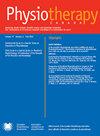量化报告 COVID 后综合征症状者的疲劳程度:拉施分析的结果
IF 0.9
4区 医学
Q4 REHABILITATION
引用次数: 0
摘要
疲劳是后氯胺酮综合征(PCS)的一个显著特征,但目前还没有一种公认的方法来衡量这种改变生活的后果。本研究的目的是创建一种适合量化 PCS 疲劳严重程度的测量方法,并为其与趋同结构的测量方法之间的关系提供初步证据。我们对魁北克后 COVID 行动队列研究中第一批 414 名自我认同为 PCS 的参与者进行了横断面分析。总共有 17 个项目,包括疲劳研究中常用的项目和用于识别劳累后不适(PEM)的项目。Rasch 分析表明,17 个项目中有 10 个符合单维线性模型,理论范围从 0 到 21(无疲劳到最高疲劳)。PCS 疲劳严重程度测量 V1(平均值:13.8;标准差:4.7)与疲劳标准测量值高度相关(r ≈│0.8│)。与疼痛、身体机能和健康评分等趋同结构的相关性超过│0.5│。PCS疲劳严重程度测量V1区分了在职者和病假者(差异:5.1分;效应大小:1.08)。患有和不患有易怒症或符合创伤后痛苦标准的人的效应大小约等于 0.5。有充分证据表明,该测量方法适用于在某一时点量化该人群的疲劳程度。还需要在其他样本中获得进一步的证据,以验证随时间变化的内容和性能。本文章由计算机程序翻译,如有差异,请以英文原文为准。
Quantifying the Degree of Fatigue in People Reporting Symptoms of Post-COVID Syndrome: Results from a Rasch Analysis
Fatigue is a defining feature of post-COVID syndrome (PCS), yet there is no accepted measure of this life-altering consequence. The aim here was to create a measure fit for the purposes of quantifying the severity of PCS fatigue and provide initial evidence for its relationships with measures of converging constructs. A cross-sectional analysis of the first 414 participants in the Quebec Action for Post-COVID cohort study who self-identified with PCS was undertaken. In total, 17 items were available, including items commonly used in fatigue studies and to identify post-exertional malaise (PEM). Rasch analysis identified that 10 of the 17 items fit a unidimensional linear model with a theoretical range from 0 to 21 (none to highest fatigue). The PCS Fatigue Severity Measure V1 (mean: 13.8; SD: 4.7) correlated highly with criterion measures of fatigue (r ≈│0.8│). Correlations with converging constructs of pain, physical function, and health rating exceeded │0.5│. PCS Fatigue Severity Measure V1 was distinguished between people working versus those on sick leave (difference: 5.1 points; effect size: 1.08). Effect sizes for people with and without irritability or meeting criteria for post-traumatic distress were approximately equal to 0.5. There is sufficient evidence that this measure is fit for purpose for quantifying fatigue in this population at one point in time. Further evidence in other samples is required to verify content and performance over time.
求助全文
通过发布文献求助,成功后即可免费获取论文全文。
去求助
来源期刊

Physiotherapy Canada
REHABILITATION-
CiteScore
1.90
自引率
20.00%
发文量
93
审稿时长
>12 weeks
期刊介绍:
Physiotherapy Canada is the official, scholarly, refereed journal of the Canadian Physiotherapy Association (CPA), giving direction to excellence in clinical science and reasoning, knowledge translation, therapeutic skills and patient-centred care.
Founded in 1923, Physiotherapy Canada meets the diverse needs of national and international readers and serves as a key repository of inquiries, evidence and advances in the practice of physiotherapy.
Physiotherapy Canada publishes the results of qualitative and quantitative research including systematic reviews, meta analyses, meta syntheses, public/health policy research, clinical practice guidelines, and case reports. Key messages, clinical commentaries, brief reports and book reviews support knowledge translation to clinical practice.
In addition to delivering authoritative, original scientific articles and reports of significant clinical studies, Physiotherapy Canada’s editorials and abstracts are presented in both English and French, expanding the journal’s reach nationally and internationally. Key messages form an integral part of each research article, providing a succinct summary for readers of all levels. This approach also allows readers to quickly get a feel for ‘what is already known’ and ‘what this study adds to’ the subject.
Clinician’s commentaries for key articles assist in bridging research and practice by discussing the article’s impact at the clinical level. The journal also features special themed series which bring readers up to date research supporting evidence-informed practice.
The Canadian Physiotherapy Association (CPA) is the national professional association representing almost 15,000 members distributed throughout all provinces and territories. CPA’s mission is to provide leadership and direction to the physiotherapy profession, foster excellence in practice, education and research, and promote high standards of health in Canada.
 求助内容:
求助内容: 应助结果提醒方式:
应助结果提醒方式:


